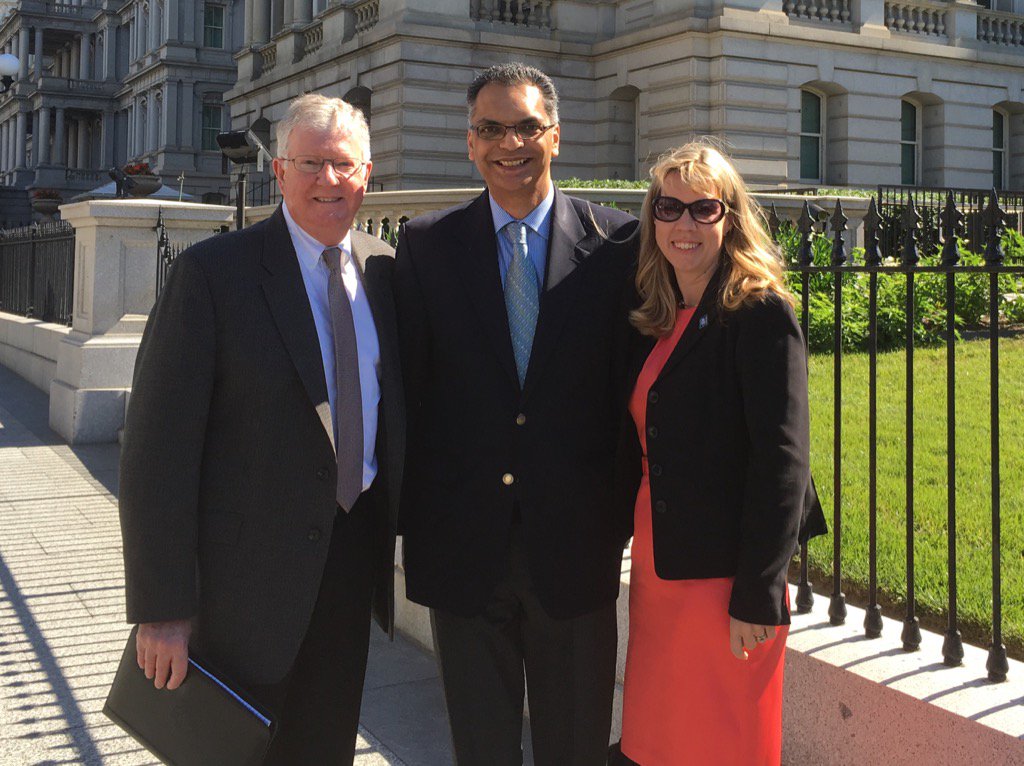The AST Applauds White House Summit, Announces Efforts to Shorten the Waiting List and Improve Transplant Outcomes
 The American Society of Transplantation (AST), the largest organization in North America representing transplantation professionals, applauds the White House and the U.S. Department of Health and Human Services (HHS) for hosting a Summit highlighting issues in transplantation and organ donation.
The American Society of Transplantation (AST), the largest organization in North America representing transplantation professionals, applauds the White House and the U.S. Department of Health and Human Services (HHS) for hosting a Summit highlighting issues in transplantation and organ donation.
The AST is pleased to not only participate in the White House Organ Summit, but also to serve as a resource throughout the planning. The presence of Anil Chandraker, MD, AST president-elect; Ronald Gill, PhD, AST secretary; and Libby McDannell, AST executive vice president, demonstrates the AST’s commitment to the Summit and the anticipated progress it will spur.
This Summit brings together major stakeholders from the transplant community to address current organ availability and the improvements needed in long-term transplant outcomes. Attendees include senior administration officials and representatives from companies, foundations, universities, hospitals, and patient advocacy organizations who are working to increase access to organ transplants and reduce the wait list. A new set of actions will be announced that will build on the Administration’s previous accomplishments to improve outcomes for individuals waiting for organ transplants and improve support for living donors.
"The AST is excited about participating in the White House Summit and appreciates the focus that this summit will bring to the current challenges in transplantation," said James S. Allan, MD, MBA, AST President. "It is critical that everyone represented at this summit continue to work together in order to advance the field of transplantation and save more lives."
The Summit highlights four commitments from the AST as part of the event:
Innovative Research
The AST aims to double long-term graft survival in the next 5-10 years by supporting innovative transplant research. Through new partnerships and the AST’s Transplantation and Immunology Research Network (TIRN), the AST will fund more than $1.3 million in research grants this year.
Drug Development
The AST, in partnership with the American Society of Transplant Surgeons (ASTS) has launched the Transplant Therapeutics Consortium to facilitate a 3-5 year research effort to develop more effective innovations and new therapies. Through collaboration with the FDA, academia, and industry, the consortium aims to improve outcomes in transplant recipients, increase graft survival, and reduce the need for re-transplantation.
Transplant Metrics
The Laura and John Arnold Foundation, AST, and ASTS will partner to develop and test new transplant center performance metrics designed to reduce undue risk aversion among transplant centers, incentivize innovation, and protect patient safety.
Living Donation Coalition
The Health Resources and Services Administration, in collaboration with the AST and ASTS, will develop a coalition that includes patient organizations and other stakeholders within the transplant community, and commits to addressing three key areas: providing education and resources for potential living donors to make an informed decision about donation; ensuring that living donors have long-term medical follow-up and access to care; and removing financial and other barriers to donation.
About the AST
With more than 3,500 members, the American Society of Transplantation (AST) is the largest organization in North America representing transplantation professionals. The society is dedicated to advancing the field and improving patient care by promoting research, education, advocacy, and organ donation. The AST’s diverse membership includes physicians, surgeons, scientists, nurses, administrators, and other allied health professionals. For more information, visit www.myAST.org.
